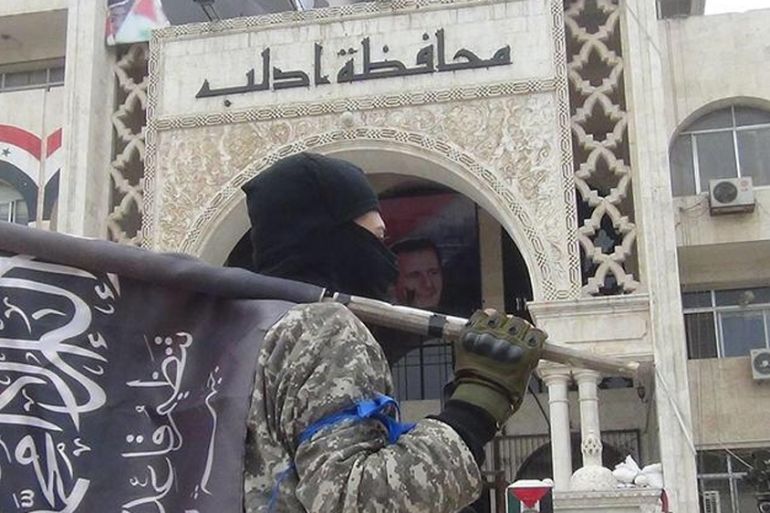Syria government warns of threat to artefacts in Idlib
Museums official Maamoun Abdulkarim says 15,000 antiquities are at risk of being lost with rebels in control of city.

Around 15,000 antiquities locked away in safes around the northwestern Syrian city of Idlib are at risk of being sold on the black market, the Syrian government’s head of antiquities and museums Maamoun Abdulkarim has said.
Abdulkarim made the comments to the Reuters news agency on Friday, just days after Syrian rebels, including the al-Qaeda-linked Nusra Front, conquered the city for the first time in the four-year conflict against President Bashar al-Assad.
Keep reading
list of 4 itemsInside the pressures facing Quebec’s billion-dollar maple syrup industry
‘Accepted in both [worlds]’: Indonesia’s Chinese Muslims prepare for Eid
Photos: Mexico, US, Canada mesmerised by rare total solar eclipse
“What has happened in Idlib is a true disaster. The worst catastrophe that has happened until now against the culture of Syria,” Abdulkarim said.
The 15,000 antiquities were crafted throughout Syria’s rich history, stretching back millennia. Pottery and statues are kept around the city, including in the main museum, Abdulkarim said.
“The armed groups kicked out the employees of the museum,” he said, adding that Syria’s treasures could be smuggled and sold abroad in neighbouring Turkey.
Syria is a cultural treasure trove and home to six UNESCO World Heritage sites. Four of these sites, including Palmyra and the Crusader castle Crac des Chevaliers, have been used for military purposes, the United Nations says.
Damascus estimates that more than 1,500 items may have been stolen from museums in Raqqa, a city in northeastern Syria now controlled by the Islamic State of Iraq and the Levant (ISIL), and Deir Atiyah in northern Damascus.
When the government controlled Idlib, the 15,000 antiquities were stored in a safe area to preserve and protect them, Abdulkarim said.
However, Razan Saffour, spokesperson for the Syrian Human Rights Committee, told Al Jazeera that the Syrian regime was “abusing the excuse of ‘heritage’ for international sympathy”.
“To say that this has been the worst disaster in Syria’s culture up to date is completely disrespectful to the hundreds of thousands of Syrians who have been killed, and to the millions who have had their houses destroyed,” Saffour said.
“The heritage sights of Palmyra and Crac des Chevaliers are currently being used for military purposes by the Syrian regime itself… if anyone is disrespecting heritage and culture it’s them.
“Before the revolution, there were many reports of security officers within the regime smuggling heritage pieces from Syria through Lebanon to other parts of the world – a great sign of disrespect to the Syrian culture and heritage the regime claims to preserve today.”
The UN Security Council in February banned all trade in antiquities from the war-torn country, where 220,000 people have been killed.